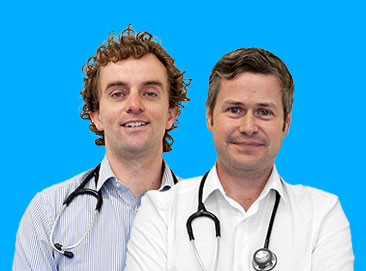Well, that depends on the answers to a few questions:
- Do you know about financial planning and the role of financial advisers in the process?
- Are you knowledgeable about investing and the difference between active and passive investing?
- Why might doctors choose one style over the other?
There’s one way to know for sure whether or not you’re ready for retirement and that’s to involve financial advisers during the financial planning process. Preferably, a specialist financial adviser for medical professionals.
The reason why it’s important for doctors to use specialist financial advisers can be explained with an analogy from the medical world: GPs can handle most everyday issues, but when something requires an expert opinion, you speak with a specialist! GPs wouldn’t tackle complex problems on their own, so why wouldn’t you work with a specialist adviser? Someone that has the experience of working with other medical professionals, so they’ll know all about your unique circumstances.
Join 30,000 doctors and receive free, exclusive, financial CPD for doctors in your inbox.
Medics’ Money is run by doctors and finance experts, for doctors. Our free financial CPD gives you all the knowledge you need to take control of your finances.

Dennis Hall, Founder of Yellowtail Financial Planning, explains that there are three stages of a working person’s life:
Stage One
During this phase, you’re building human capital, developing your knowledge and skills. Doctors tend to spend a lot longer during this stage. They spend a lot of time building up their human capital at medical school and in core/specialty training.
Stage Two
This phase is where human capital turns to potential, which in turn, results in cash. During this stage you’re exchanging the skills and knowledge with other doctors during shifts at hospitals, clinics, GP practices, etc. At this point you’ll likely be accumulating wealth, so you will need to decide what to do with this cash during this period — keeping in mind the third and final stage of your life.
During this stage, focus on investing. There are two strategies — active and passive. What are the benefits of each? Should doctors use one over the other? To learn more about active and passive investing, listen to our podcast.
Stage Three
The final stage is all about relying on everything that you have accumulated over the years that will sustain you through the final stage: retirement.
The importance of financial planning
As you can see, ensuring you have a financial plan that will see you through the entire journey is critical to having the kind of retirement you want and determining when you’ll be able to achieve that.
Ideally, you’ll seek advice as early as possible to get a solid plan in place. But before you start planning, you first need to understand what your financial and lifestyle objectives are. What do you want your golden years to look like? There are ways to figure out roughly how much you’ll need for retirement, calculate your magic number and build a plan that will ensure you get there.
But keep in mind, financial planning is not a one-off. You will need to review it periodically and keep your plan updated based on your changing life circumstances and future goals. Financial advisers are key for helping you get your strategy right no matter what stage of life you’re in.
Listen to the podcast
To learn more about preparing for retirement, listen to our podcast
What medical school didn’t teach us about money
“What medical school didn’t teach us about money” will give doctors a step by step plan to transforming your financial future. Enter your details to download your copy now









